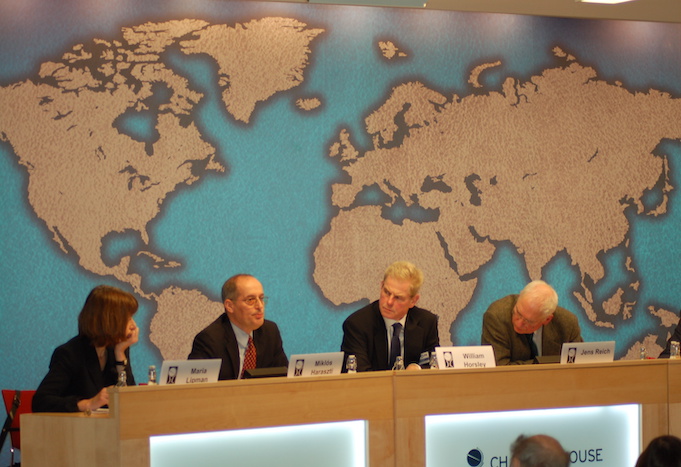On 2 February 2009, the Centre for Freedom of the Media (CFOM) was officially launched. CFOM was designed to join the skills and expertise of a leading research university with the experience and understanding of leading journalists and editors to define and expose ways in which news media freedom is abused, and to examine media standards of independence and truthfulness. A launch event was hosted with Chatham House. It was the first major public event in the UK during the 20th anniversary of the 1989 Year of Revolutions. The event was funded by the Open Society Foundation and the then Foreign & Commonwealth Office (FCO). It was co-organised by CFOM and Chatham House staff, with support from the former BBC executive Jock Gallagher.

The conference explored the part played by the popular demand for free expression as a factor in the anti-communist revolutions, and assessed the evidence that a widespread retreat of press and political freedom had taken place in recent years across many parts of post-Cold War Europe and Russia. CFOM’s International Director William Horsley delivered introductory remarks entitled ‘Freedom of Expression and Press Freedom: The End of the 1989 Consensus?’ and talked about the role that CFOM would play.
CFOM has a bold ambition, to treat the media’s role as a proper subject of study for political scientists. Now more than ever before the media, in their countless forms and platforms, must be seen as an integral part of the system of governance for countries, and even of wider structures of international relations
Jens Reich, former leader of New Forum pro-democracy movement in East Germany was the keynote speaker at the event. The keynote was entitled ‘Reflections on the Road From The Year of Revolutions’ and focused on the pressures that journalists faced following the fall of the Berlin Wall and, in particular, called on journalists to ‘exert pressure on their own diplomats and politicians, to ensure that they remind their partners…at every opportunity about the broken promise to allow freedom of the media’. Miklós Harastzi, former OSCE Representative on Freedom of the Media also delivered a talk entitled ‘The Meltdown of OSCE Commitments to Media Freedom’ where he emphasised the importance of defending the institutions created during and just after the Cold War. Indeed, Bill Bowring, Human Rights Lawyer and expert in Council of Europe cases, Professor of Law, Birkbeck College, University of London noted how there had been a missed opportunity and momentum of reforms proposed in Russia before the Soviet Union collapsed had never been seen through to achieve a culture focused on the rule of law. Aleksey Simonov, from Glasnost Defence Foundation, stated that it was a sequence of events in the 1990s, including murderous hostility to free journalism, that undid the possibility of democracy taking root in Russia. Lila Shevtsova from Carnegie Moscow Center also added that there were forces at work that laid behind the sharp division of the former Soviet bloc countries into broadly democratic and undemocratic countries, with Russian imperialist ideology and cynical misuse of power being used by an entire class for its own gain.
Other speakers also included:
- Lionel Barber, Editor of the Financial Times
- Miklós Haraszti, OSCE Representative on Freedom of the Media
- Masha Lipman, Editor of Pro and Contra
- Lionel Barber, Editor of The Financial Times
- Irina Demchenko, UK Bureau Chief, RIA-Novosti
- Aleksey Simonov, Glasnost Defence Foundation
- William Bowring, Human Rights Lawyer and expert in Council of Europe cases, Professor of Law, Birkbeck College, University of London
- Lilia Shevtsova, Carnegie Moscow Center
You can read more from International Director, William Horsley, on CFOM’s launch event below.
